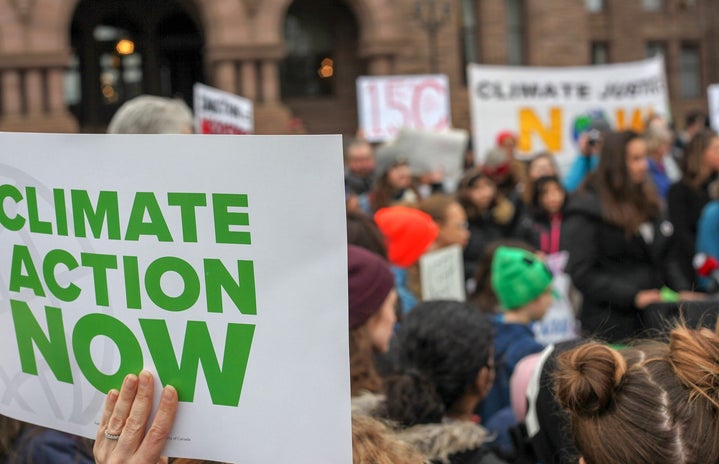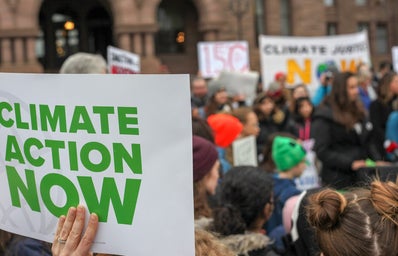Oftentimes when thinking of climate change people identify changing temperatures, intense weather events and warming of the earth’s climate as its potential effects. While all these impacts are relevant, there is an additional, often overlooked impact of climate change: its potential to displace people, often pushing them to migrate outside of their countries. Climate-induced migration is becoming an urgent problem– one that will require a multi-faceted international plan to address.
Earth’s climate varies naturally over the course of centuries. In recent decades, human activity, such as the burning of fossil fuels, has led to an excess of greenhouse gasses that trap heat close to the earth’s surface. This trapped heat is responsible for changing the earth’s climate in ways that deviate from its natural variations and causes much of the climate change impacts we see today. Immediate intense weather disasters such as typhoons and slower onset events, like rising sea levels both have the potential to induce migration. According to the World Economic Forum, Bangladesh is predicted to be 17 percent submerged by 2050 meaning that the 20 million people living in the country’s coastal regions will be displaced. Developing countries in regions like Central America, Southeast Asia and Central Africa will likely see the most migrants. An estimated 1.2 billion people will be displaced by climate-related events by 2050.
The term “climate refugee” is used to describe a person who moves across borders due to weather-related disasters. While climate change events are rarely the only reason why people move, as political and economic factors also influence that decision, they are most definitely a “threat multiplier,” and exacerbate the reasons why people feel the need to move. While the United Nations (UN) has a framework to address refugees, it primarily offers refugee status to immediate threats to life. In the case of Kiribati, which is experiencing rising sea levels but is not in imminent danger, the UN rejected climate refugees’ applications to migrate to New Zealand. Slower onset climate change events like desertification and rising sea levels, cause gradual harm to ecosystems, livelihoods, living conditions and habitability, and cause just as much destruction and threats to livelihood as immediate events do. Currently, there is not an adequate international framework to address this unique situation that climate change refugees are in.
As time progresses and the hope for complete climate change mitigation diminishes, the world must prepare for a new era of migration that will cite climate change as a reason for relocation. According to the Wilson Center, climate change poses an acute threat, especially to South Asia, which is estimated to produce over 40 million climate refugees if climate change continues to worsen. In addition, 90 percent of the people who are at risk of losing their homes due to sea levels rising live in developing nations– a shocking 234 million people. Most of these refugees will move to developed nations, putting political pressure on them. As we enter this new era of migration, it is important that human rights are kept at the forefront of the international response. It is up to the international community to properly address this issue by devising plans for relocation, adaptation and incorporation into new climates and environments for climate refugees.
Want to see more HCFSU? Be sure to like us onFacebook and follow us on Instagram,Twitter, TikTok, YouTube and Pinterest!


